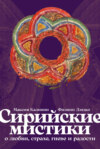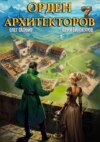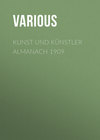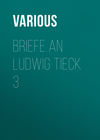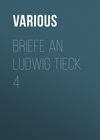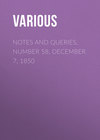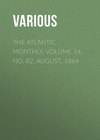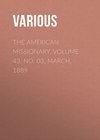Buch lesen: «Harper's New Monthly Magazine, No. VI, November 1850, Vol. I»
A PILGRIMAGE TO THE CRADLE OF AMERICAN LIBERTY.
WITH PEN AND PENCIL
BY BENSON J. LOSSING. 1
"How suddenly that straight and glittering shaft
Shot thwart the earth! in crown of living fire
Up comes the day! As if they conscious quaff'd
The sunny flood, hill, forest, city spire
Laugh in the waking light."
Richard H. Dana.
t was a glorious October morning, mild and brilliant, when I left Boston to visit Concord and Lexington. A gentle land-breeze during the night had borne the clouds back to their ocean birth-place, and not a trace of the storm was left except in the saturated earth. Health returned with the clear sky, and I felt a rejuvenescence in every vein and muscle when, at dawn, I strolled over the natural glory of Boston, its broad and beautifully-arbored Common. I breakfasted at six, and at half-past seven left the station of the Fitchburg rail-way for Concord, seventeen miles northwest of Boston. The country through which the road passed is rough and broken, but thickly settled. I arrived at the Concord station, about half a mile from the centre of the village, before nine o'clock, and procuring a conveyance, and an intelligent young man for a guide, proceeded at once to visit the localities of interest in the vicinity. We rode to the residence of Major James Barrett, a surviving grandson of Colonel Barrett, about two miles north of the village, and near the residence of his venerated ancestor. Major Barrett was eighty-seven years of age when I visited him; and his wife, with whom he had lived nearly sixty years, was eighty. Like most of the few survivors of the Revolution, they were remarkable for their mental and bodily vigor. Both, I believe, still live. The old lady – a small, well-formed woman – was as sprightly as a girl of twenty, and moved about the house with the nimbleness of foot of a matron in the prime of life. I was charmed with her vivacity, and the sunny radiance which it seemed to shed throughout her household; and the half hour that I passed with that venerable couple is a green spot in the memory.
Major Barrett was a lad of fourteen when the British incursion into Concord took place. He was too young to bear a musket, but, with every lad and woman in the vicinity, he labored in concealing the stores and in making cartridges for those who went out to fight. With oxen and a cart, himself, and others about his age, removed the stores deposited at the house of his grandfather, into the woods, and concealed them, a cart-load in a place, under pine boughs. In such haste were they obliged to act on the approach of the British from Lexington, that, when the cart was loaded, lads would march on each side of the oxen and goad them into a trot. Thus all the stores were effectually concealed, except some carriage-wheels. Perceiving the enemy near, these were cut up and burned; so that Parsons found nothing of value to destroy or carry away.
From Major Barrett's we rode to the monument erected at the site of the old North Bridge, where the skirmish took place. The road crosses the Concord River a little above the site of the North Bridge. The monument stands a few rods westward of the road leading to the village, and not far from the house of the Reverend Dr. Ripley, who gave the ground for the purpose. The monument is constructed of granite from Carlisle, and has an inscription upon a marble tablet inserted in the eastern face of the pedestal.2 The view is from the green shaded lane which leads from the highway to the monument, looking westward. The two trees standing, one upon each side, without the iron railing, were saplings at the time of the battle; between them was the entrance to the bridge. The monument is reared upon a mound of earth a few yards from the left bank of the river. A little to the left, two rough, uninscribed stones from the field mark the graves of the two British soldiers who were killed and buried upon the spot.
We returned to the village at about noon, and started immediately for Lexington, six miles eastward.
Concord is a pleasant little village, including within its borders about one hundred dwellings. It lies upon the Concord River, one of the chief tributaries of the Merrimac, near the junction of the Assabeth and Sudbury Rivers. Its Indian name was Musketaquid. On account of the peaceable manner in which it was obtained, by purchase, of the aborigines, in 1635, it was named Concord. At the north end of the broad street, or common, is the house of Col. Daniel Shattuck, a part of which, built in 1774, was used as one of the depositories of stores when the British invasion took place. It has been so much altered, that a view of it would have but little interest as representing a relic of the past.
The road between Concord and Lexington passes through a hilly but fertile country. It is easy for the traveler to conceive how terribly a retreating army might be galled by the fire of a concealed enemy. Hills and hillocks, some wooded, some bare, rise up every where, and formed natural breast-works of protection to the skirmishers that hung upon the flank and rear of Colonel Smith's troops. The road enters Lexington at the green whereon the old meeting-house stood when the battle occurred. The town is upon a fine rolling plain, and is becoming almost a suburban residence for citizens of Boston. Workmen were inclosing the Green, and laying out the grounds in handsome plats around the monument, which stands a few yards from the street. It is upon a spacious mound; its material is granite, and it has a marble tablet on the south front of the pedestal, with a long inscription.3 The design of the monument is not at all graceful, and, being surrounded by tall trees, it has a very "dumpy" appearance. The people are dissatisfied with it, and doubtless, ere long, a more noble structure will mark the spot where the curtain of the revolutionary drama was first lifted.
After making the drawings here given, I visited and made the sketch of "Clark's House." There I found a remarkably intelligent old lady, Mrs. Margaret Chandler, aged eighty-three years. She has been an occupant of the house, I believe, ever since the Revolution, and has a perfect recollection of the events of the period. Her version of the escape of Hancock and Adams is a little different from the published accounts. She says that on the evening of the 18th of April, 1775, some British officers, who had been informed where these patriots were, came to Lexington, and inquired of a woman whom they met, for "Mr. Clark's house." She pointed to the parsonage; but in a moment, suspecting their design, she called to them and inquired if it was Clark's tavern that they were in search of. Uninformed whether it was a tavern or a parsonage where their intended victims were staying, and supposing the former to be the most likely place, the officers replied, "Yes, Clark's tavern." "Oh," she said, "Clark's tavern is in that direction," pointing toward East Lexington. As soon as they departed, the woman hastened to inform the patriots of their danger, and they immediately arose and fled to Woburn. Dorothy Quincy, the intended wife of Hancock, who was at Mr. Clark's, accompanied them in their flight.
I next called upon the venerable Abijah Harrington, who was living in the village. He was a lad of fourteen at the time of the engagement. Two of his brothers were among the minute men, but escaped unhurt. Jonathan and Caleb Harrington, near relatives, were killed. The former was shot in front of his own house, while his wife stood at the window in an agony of alarm. She saw her husband fall, and then start up, the blood gushing from his breast. He stretched out his arms toward her, and then fell again. Upon his hands and knees he crawled toward his dwelling, and expired just as his wife reached him. Caleb Harrington was shot while running from the meeting-house. My informant saw almost the whole of the battle, having been sent by his mother to go near enough, and be safe, to obtain and convey to her information respecting her other sons, who were with the minute men. His relation of the incidents of the morning was substantially such as history has recorded. He dwelt upon the subject with apparent delight, for his memory of the scenes of his early years, around which cluster so much of patriotism and glory, was clear and full. I would gladly have listened until twilight to the voice of such experience, but time was precious, and I hastened to East Lexington, to visit his cousin, Jonathan Harrington, an old man of ninety, who played the fife when the minute men were marshaled on the Green upon that memorable April morning. He was splitting fire-wood in his yard with a vigorous hand when I rode up; and as he sat in his rocking-chair, while I sketched his placid features, he appeared no older than a man of seventy. His brother, aged eighty-eight, came in before my sketch was finished, and I could not but gaze with wonder upon these strong old men, children of one mother, who were almost grown to manhood when the first battle of our Revolution occurred! Frugality and temperance, co-operating with industry, a cheerful temper, and a good constitution, have lengthened their days, and made their protracted years hopeful and happy.4 The aged fifer apologized for the rough appearance of his signature, which he kindly wrote for me, and charged the tremulous motion of his hand to his labor with the ax. How tenaciously we cling even to the appearance of vigor, when the whole frame is tottering to its fall! Mr. Harrington opened the ball of the Revolution with the shrill war-notes of the fife, and then retired from the arena. He was not a soldier in the war, nor has his life, passed in the quietude of rural pursuits, been distinguished except by the glorious acts which constitute the sum of the achievements of a GOOD CITIZEN.
I left Lexington at about three o'clock, and arrived at Cambridge at half past four. It was a lovely autumnal afternoon. The trees and fields were still green, for the frost had not yet been busy with their foliage and blades. The road is Macadamized the whole distance; and so thickly is it lined with houses, that the village of East Lexington and Old Cambridge seem to embrace each other in close union.
Cambridge is an old town, the first settlement there having been planted in 1631, contemporaneous with that of Boston. It was the original intention of the settlers to make it the metropolis of Massachusetts, and Governor Winthrop commenced the erection of his dwelling there. It was called New Town, and in 1632 was palisaded. The Reverend Mr. Hooker, one of the earliest settlers of Connecticut, was the first minister in Cambridge. In 1636, the General Court provided for the erection of a public school in New Town, and appropriated two thousand dollars for that purpose. In 1638, the Reverend John Harvard, of Charlestown, endowed the school with about four thousand dollars. This endowment enabled them to exalt the academy into a college, and it was called Harvard University in honor of its principal benefactor.
Cambridge has the distinction of being the place where the first printing-press in America was established. Its proprietor was named Day, and the capital that purchased the materials was furnished by the Rev. Mr. Glover. The first thing printed was the "Freeman's Oath," in 1636; the next was an almanac; and the next the Psalms, in metre.5 Old Cambridge (West Cambridge, or Metonomy, of the Revolution), the seat of the University, is three miles from West Boston Bridge, which connects Cambridge with Boston. Cambridgeport is about half way between Old Cambridge and the bridge, and East Cambridge occupies Lechmere's Point, a promontory fortified during the siege of Boston in 1775.
Arrived at Old Cambridge, I parted company with the vehicle and driver that conveyed me from Concord to Lexington, and hither; and, as the day was fast declining, I hastened to sketch the head-quarters of Washington, an elegant and spacious edifice, standing in the midst of shrubbery and stately elms, a little distance from the street, once the highway from Harvard University to Waltham. At this mansion, and at Winter Hill, Washington passed most of his time, after taking command of the Continental army, until the evacuation of Boston in the following spring. Its present owner is Henry Wadsworth Longfellow, Professor of Oriental languages in Harvard University, and widely known in the world of literature as one of the most gifted men of the age. It is a spot worthy of the residence of an American bard so endowed, for the associations which hallow it are linked with the noblest themes that ever awakened the inspiration of a child of song.
"When the hours of Day are number'd
And the voices of the Night
Wake the better soul that slumber'd
To a holy, calm delight,
Ere the evening lamps are lighted,
And, like phantoms grim and tall,
Shadows from the fitful fire-light
Dance upon the parlor wall,"
then to the thoughtful dweller must come the spirit of the place and hour to weave a gorgeous tapestry, rich with pictures, illustrative of the heroic age of our young republic. My tarry was brief and busy, for the sun was rapidly descending – it even touched the forest tops before I finished the drawing – but the cordial reception and polite attentions which I received from the proprietor, and his warm approval of, and expressed interest for the success of my labors, occupy a space in memory like that of a long, bright summer day.
This mansion stands upon the upper of two terraces, which are ascended each by five stone steps. At each front corner of the house is a lofty elm – mere saplings when Washington beheld them, but now stately and patriarchal in appearance. Other elms, with flowers and shrubbery, beautify the grounds around it; while within, iconoclastic innovation has not been allowed to enter with its mallet and trowel, to mar the work of the ancient builder, and to cover with the vulgar stucco of modern art the carved cornices and paneled wainscots that first enriched it. I might give a long list of eminent persons whose former presence in those spacious rooms adds interest to retrospection, but they are elsewhere identified with scenes more personal and important. I can not refrain, however, from noticing the visit of one, who, though a dark child of Africa and a bond-woman, received the most polite attention from the commander-in-chief. This was Phillis, a slave of Mr. Wheatley, of Boston. She was brought from Africa when between seven and eight years old. She seemed to acquire knowledge intuitively; became a poet of considerable merit, and corresponded with such eminent persons as the Countess of Huntingdon, Earl of Dartmouth, Reverend George Whitefield, and others. Washington invited her to visit him at Cambridge, which she did a few days before the British evacuated Boston; her master among others, having left the city by permission, and retired, with his family, to Chelsea. She passed half an hour with the commander-in-chief, from whom and his officers she received marked attention.6
A few rods above the residence of Professor Longfellow is the house in which the Brunswick general, the Baron Riedesel, and his family were quartered, during the stay of the captive army of Burgoyne in the vicinity of Boston. I was not aware when I visited Cambridge, that the old mansion was still in existence; but, through the kindness of Mr. Longfellow, I am able to present the features of its southern front, with a description. In style it is very much like that of Washington's head-quarters, and the general appearance of the grounds around is similar. It is shaded by noble linden-trees, and adorned with shrubbery, presenting to the eye all the attractions noticed by the Baroness of Riedesel in her charming letters.7 Upon a window-pane on the north side of the house may be seen the undoubted autograph of that accomplished woman, inscribed with a diamond point. It is an interesting memento, and is preserved with great care. The annexed is a facsimile of it.
During the first moments of the soft evening twilight I sketched the "Washington elm," one of the ancient anakim of the primeval forest, older, probably, by a half century or more, than the welcome of Samoset to the white settlers. It stands upon Washington-street, near the westerly corner of the Common, and is distinguished by the circumstance that, beneath its broad shadow, General Washington first drew his sword as commander-in-chief of the Continental army, on the 3d of July, 1775. Thin lines of clouds, glowing in the light of the setting sun like bars of gold, streaked the western sky, and so prolonged the twilight by reflection, that I had ample time to finish my drawing before the night shadows dimmed the paper.
Early on the following morning I procured a chaise to visit Charlestown and Dorchester Heights. I rode first to the former place, and climbed to the summit of the great obelisk that stands upon the site of the redoubt upon Breed's Hill. As I ascended the steps which lead from the street to the smooth gravel-walks upon the eminence whereon the "Bunker Hill Monument" stands, I experienced a feeling of disappointment and regret, not easily to be expressed. Before me was the great memento, huge and grand – all that patriotic reverence could wish – but the ditch scooped out by Prescott's toilers on that starry night in June, and the mounds that were upheaved to protect them from the shots of the astonished Britons, were effaced, and no more vestiges remain of the handiwork of those in whose honor and to whose memory this obelisk was raised, than of Roman conquests in the shadow of Trajan's column – of the naval battles of Nelson around his monument in Trafalgar-square, or of French victories in the Place Vendôme. The fosse and the breast-works were all quite prominent when the foundation-stone of the monument was laid, and a little care, directed by good taste, might have preserved them in their interesting state of half ruin until the passage of the present century, or, at least, until the sublime centenary of the battle should be celebrated. Could the visitor look upon the works of the patriots themselves, associations a hundred-fold more interesting would crowd the mind, for wonderfully suggestive of thought are the slightest relics of the past when linked with noble deeds. A soft green sward, as even as the rind of a fair apple, and cut by eight straight gravel-walks, diverging from the monument, is substituted by art for the venerated irregularities made by the old mattock and spade. The spot is beautiful to the eye untrained by appreciating affection for hallowed things; nevertheless, there is palpable desecration that may hardly be forgiven.
The view from the top of the monument, for extent, variety, and beauty, is certainly one of the finest in the world. A "York shilling" is charged for the privilege of ascending the monument. The view from its summit is "a shilling show" worth a thousand miles of travel to see. Boston, its harbor, and the beautiful country around, mottled with villages, are spread out like a vast painting, and on every side the eye may rest upon localities of great historical interest, Cambridge, Roxbury, Chelsea, Quincy, Medford, Marblehead, Dorchester, and other places, where
"The old Continentals,
In their ragged regimentals,
Falter'd not,"
and the numerous sites of small fortifications which the student of history can readily call to mind. In the far distance, on the northwest, rise the higher peaks of the White Mountains of New Hampshire; and on the northeast, the peninsula of Nahant, and the more remote Cape Anne may be seen. Wonders which present science and enterprise are developing and forming are there exhibited in profusion. At one glance from this lofty observatory may be seen seven railroads,8 and many other avenues connecting the city with the country; and ships from almost every region of the globe dot the waters of the harbor. Could a tenant of the old grave-yard on Copp's Hill, who lived a hundred years ago, when the village upon Tri-mountain was fitting out its little armed flotillas against the French in Acadia, or sending forth its few vessels of trade along the neighboring coasts, or occasionally to cross the Atlantic, come forth and stand beside us a moment, what a new and wonderful world would be presented to his vision! A hundred years ago!
"Who peopled all the city streets
A hundred years ago?
Who fill'd the church with faces meek
A hundred years ago?"
They were men wise in their generation, but ignorant in practical knowledge when compared with the present. In their wildest dreams, incited by tales of wonder that spiced the literature of their times, they never fancied any thing half so wonderful as our mighty dray-horse,
"The black steam-engine! steed of iron power —
The wond'rous steed of the Arabian tale,
Lanch'd on its course by pressure of a touch —
The war-horse of the Bible, with its neck
Grim, clothed with thunder, swallowing the way
In fierceness of its speed, and shouting out,
'Ha! ha!'9 A little water, and a grasp
Of wood, sufficient for its nerves of steel,
Shooting away, 'Ha! ha!' it shouts, as on
It gallops, dragging in its tireless path
Its load of fire."
I lingered in the chamber of the Bunker Hill monument as long as time would allow, and descending, rode back to the city, crossed to South Boston, and rambled for an hour among the remains of the fortifications upon the heights of the peninsula of Dorchester. The present prominent remains of fortifications are those of intrenchments cast up during the war of 1812, and have no other connection with our subject than the circumstance that they occupy the site of the works constructed there by order of Washington. These were greatly reduced in altitude when the engineers began the erection of the forts now in ruins, which are properly preserved with a great deal of care. They occupy the summits of two hills, which command Boston Neck on the left, the city of Boston in front, and the harbor on the right. Southeast from the heights, pleasantly situated among gentle hills, is the village of Dorchester, so called in memory of a place in England of the same name, whence many of its earliest settlers came. The stirring events which rendered Dorchester Heights famous are universally known.
I returned to Boston at about one o'clock, and passed the remainder of the day in visiting places of interest within the city – the old South meeting-house, Faneuil Hall, the Province House, and the Hancock House. I am indebted to John Hancock, Esq., nephew of the patriot, and present proprietor and occupant of the "Hancock House," on Beacon-street, for polite attentions while visiting his interesting mansion, and for information concerning matters that have passed under the eye of his experience of threescore years. He has many mementoes of his eminent kinsman, and among them a beautifully-executed miniature of him, painted in London, in 1761, while he was there at the coronation of George III.
Near Mr. Hancock's residence is the State House, a noble structure upon Beacon Hill, the corner-stone of which was laid in 1795, by Governor Samuel Adams, assisted by Paul Revere, master of the Masonic grand lodge. There I sketched the annexed picture of the colossal statue of Washington, by Chantrey, which stands in the open centre of the first story; also the group of trophies from Bennington, that hang over the door of the Senate chamber. Under these trophies, in a gilt frame, is a copy of the reply of the Massachusetts Assembly to General Stark's letter, that accompanied the presentation of the trophies. It was written fifty years ago.
After enjoying the view from the top of the State House a while, I walked to Copp's Hill, a little east of Charlestown Bridge, at the north end of the town, where I tarried until sunset in the ancient burying-ground. The earliest name of this eminence was Snow Hill. It was subsequently named after its owner, William Copp.10 It came into the possession of the Ancient and Honorable Artillery Company by mortgage; and when, in 1775, they were forbidden by Gage to parade on the Common, they went to this, their own ground, and drilled in defiance of his threats. The fort, or battery, that was built there by the British, just before the battle of Bunker Hill, stood near its southeast brow, adjoining the burying-ground. The remains of many eminent men repose in that little cemetery. Close by the entrance is the vault of the Mather family. It is covered by a plain, oblong structure of brick, three feet high and about six feet long, upon which is laid a heavy brown stone slab, with a tablet of slate, bearing the names of the principal tenants below.11
I passed the forenoon of the next day in the rooms of the Massachusetts Historical Society, where every facility was afforded me by Mr. Felt, the librarian, for examining the assemblage of things curious collected there.12 The printed books and manuscripts, relating principally to American history, are numerous, rare, and valuable.
There is also a rich depository of the autographs of the Pilgrim fathers and their immediate descendants. There are no less than twenty-five large folio volumes of valuable manuscript letters and other documents; besides which are six thick quarto manuscript volumes – a commentary on the Holy Scriptures – in the handwriting of Cotton Mather. From an autograph letter of that singular man the annexed fac-simile of his writing and signature is given. Among the portraits in the cabinet of the society are those of Governor Winslow, supposed to have been painted by Vandyke, Increase Mather, and Peter Faneuil, the founder of Faneuil Hall.
I had the pleasure of meeting, at the rooms of the society, that indefatigable antiquary, Dr. Webb, widely known as the American correspondent of the "Danish Society of Northern Antiquarians" at Copenhagen. He was sitting in the chair that once belonged to Governor Winthrop, writing upon the desk of the speaker of the Colonial Assembly of Massachusetts, around which the warm debates were carried on concerning American liberty, from the time when James Otis denounced the Writs of Assistance, until Governor Gage adjourned the Assembly to Salem, in 1774. Hallowed by such associations, the desk is an interesting relic. Dr. Webb's familiarity with the collections of the society, and his kind attentions, greatly facilitated my search among the six thousand articles for things curious connected with my subject and made my brief visit far more profitable to myself than it would otherwise have been. Among the relics preserved are the chair that belonged to Governor Carver; the sword of Miles Standish; the huge key of Port Royal gate; a samp-pan, that belonged to Metacomet, or King Philip; and the sword reputed to have been used by Captain Church when he cut off that unfortunate sachem's head. The dish is about twelve inches in diameter, wrought out of an elm knot with great skill. The sword is very rude, and was doubtless made by a blacksmith of the colony. The handle is a roughly-wrought piece of ash, and the guard is made of a wrought-iron plate.
[From Dickens's Household Words.]
The following is a copy of the inscription:
Here,On the 19th of April, 1775,was made the first forcible resistance toBritish AggressionOn the opposite bank stood the Americanmilitia, and on this spot the first of the enemy fellin the War of the Revolution,which gave Independence to these United StatesIn gratitude to God, and in the love of Freedom,This Monument was erected,A.D. 1836
[Закрыть]
"Sacred to the Liberty and the Rights of Mankind!!! The Freedom and Independence of America – sealed and defended with the blood of her sons – This Monument is erected by the Inhabitants of Lexington, under the patronage and at the expense of the Commonwealth of Massachusetts, to the memory of their Fellow-citizens, Ensign Robert Monroe, Messrs. Jonas Parker, Samuel Hadley, Jonathan Harrington, jun., Isaac Muzzy, Caleb Harrington, and John Brown, of Lexington, and Asahel Porter, of Woburn, who fell on this Field, the first victims of the Sword of British Tyranny and Oppression, on the morning of the ever-memorable Nineteenth of April, An. Dom. 1775. The Die was Cast!!! The blood of these Martyrs in the Cause of God and their Country was the Cement of the Union of these States, then Colonies, and gave the Spring to the Spirit, Firmness, and Resolution of their Fellow-citizens. They rose as one man to revenge their Brethren's blood, and at the point of the Sword to assert and defend their native Rights. They nobly dared to be Free!!! The contest was long, bloody, and affecting. Righteous Heaven approved the Solemn Appeal; Victory crowned their Arms, and the Peace, Liberty, and Independence of the United States of America was their glorious Reward. Built in the year 1799."
"Cambridge, February 28, 1776. "Miss Phillis – Your favor of the 26th of October did not reach my hands till the middle of December. Time enough, you will say, to have given an answer ere this. Granted. But a variety of important occurrences, continually interposing to distract the mind and withdraw the attention, I hope will apologize for the delay, and plead my excuse for the seeming but not real neglect. I thank you most sincerely for your polite notice of me in the elegant lines you inclosed; and however undeserving I may be of such encomium and panegyric, the style and manner exhibit a striking proof of your poetical talents; in honor of which, and as a tribute justly due to you, I would have published the poem, had I not been apprehensive that, while I only meant to give the world this new instance of your genius, I might have incurred the imputation of vanity. This, and nothing else, determined me not to give it a place in the public prints. If you should ever come to Cambridge, or near head-quarters, I shall be happy to see a person so favored by the Muses, and to whom nature has been so liberal and beneficent in her dispensations. I am, with great respect, your obedient, humble servant, Geo. Washington."
"We passed three weeks in this place, and were then transferred to Cambridge, where we were lodged in one of the best houses of the place, which belonged to Royalists. Seven families, who were connected by relationship, or lived in great intimacy, had here farms, gardens, and splendid mansions, and not far off, orchards, and the buildings were at a quarter of a mile distant from each other. The owners had been in the habit of assembling every afternoon in one or another of these houses, and of diverting themselves with music or dancing, and lived in affluence, in good humor, and without care, until this unfortunate war at once dispersed them, and transformed all their houses into solitary abodes, except two, the proprietors of which were also soon obliged to make their escape…
"On the 3d of June, 1778, I gave a ball and supper, in celebration of my husband's birthday. I had invited all our generals and officers and Mr. and Mrs. Carter. General Burgoyne sent us an apology, after he had made us wait for him till eight o'clock. He had always some excuse for not visiting us, until he was about departing for England, when he came and made me many apologies, to which I made no other reply than that I should be extremely sorry if he had put himself to any inconvenience for our sake. The dance lasted long, and we had an excellent supper, to which more than eighty persons sat down. Our yard and garden were illuminated. The king's birth-day falling on the next day, it was resolved that the company should not separate before his Majesty's health was drank; which was done, with feelings of the liveliest attachment to his person and interests. Never, I believe, was 'God Save the King' sung with more enthusiasm, or with feelings more sincere. Our two eldest girls were brought into the room to see the illumination. We were all deeply moved, and proud to have the courage to display such sentiments in the midst of our enemies. Even Mr. Carter could not forbear participating in our enthusiasm." Mr. Carter was the son-in-law of General Schuyler. Remembering the kindness which she had received from that gentleman while in Albany, the baroness sought out Mr. and Mrs. Carter (who were living in Boston), on her arrival at Cambridge. "Mrs. Carter," she says, "resembled her parents in mildness and goodness of heart, but her husband was revengeful and false." The patriotic zeal of Mr. Carter had given rise to foolish stories respecting him. "They seemed to feel much friendship for us," says Madame De Riedesel; "though, at the same time, this wicked Mr. Carter, in consequence of General Howe's having burned several villages and small towns, suggested to his countrymen to cut off our generals' heads, to pickle them, and to put them in small barrels, and, as often as the English should again burn a village, to send them one of these barrels; but that cruelty was not adopted." —Letters and Memoire relating to the War of American Independence, by Madame De Riedesel..



